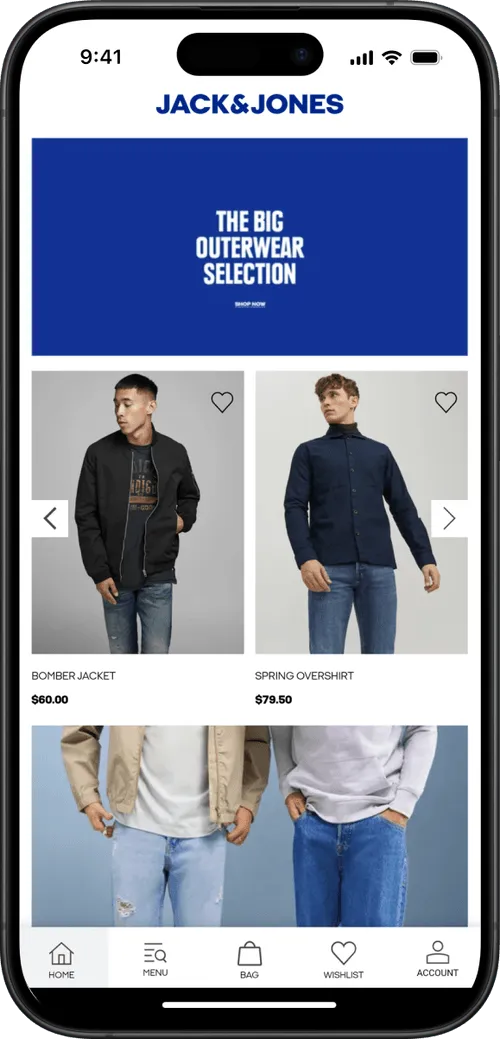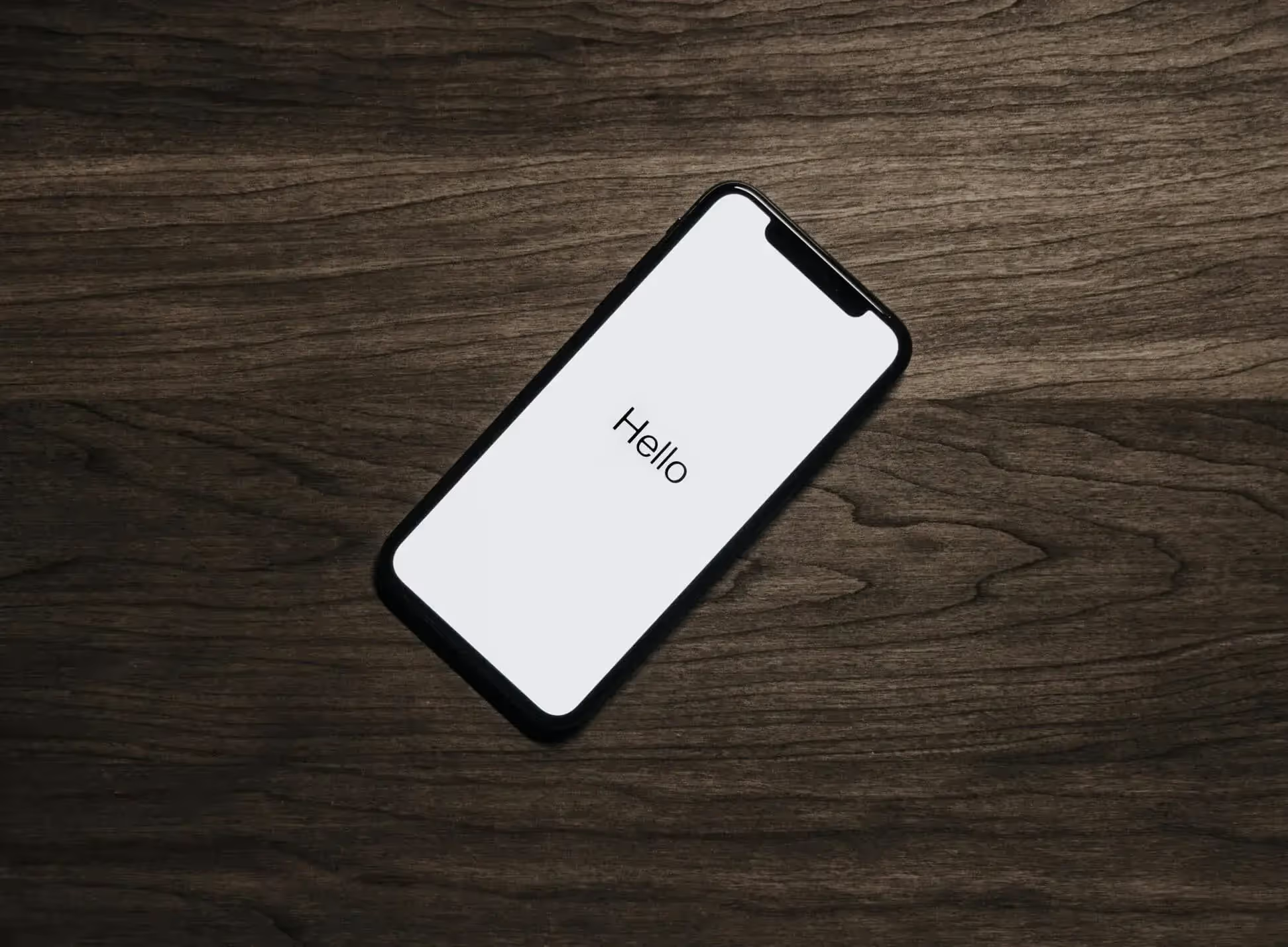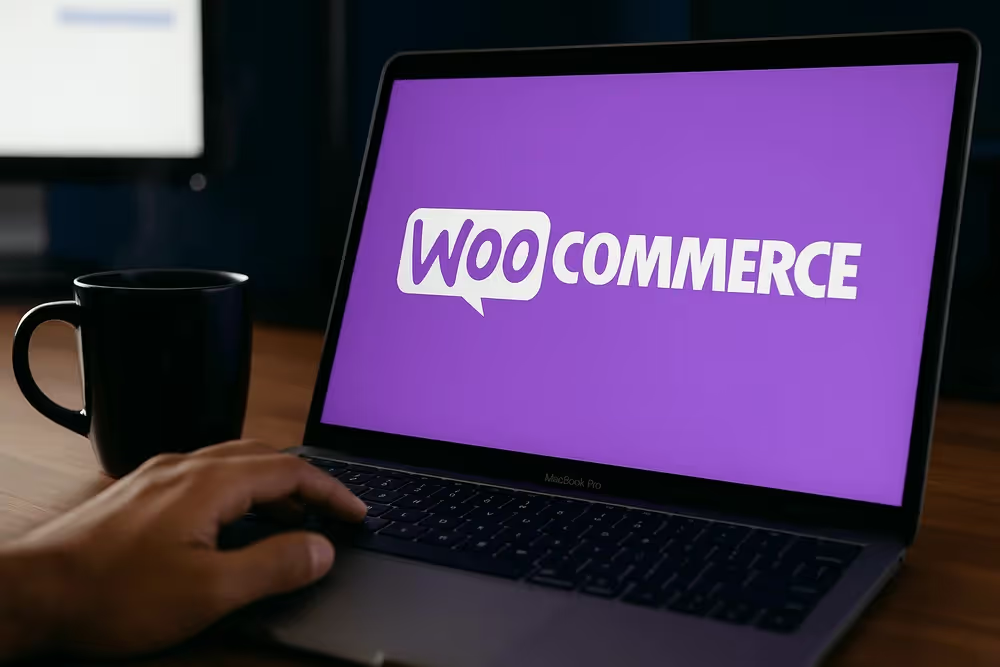Why You Shouldn't Use DIY, No-Code App Builders To Build Your Mobile Apps
No-code mobile app builders are popular for a reason. They promise a low-cost, DIY way to build your perfect mobile app.
However despite its many benefits, the DIY approach isn’t for everyone.
To help you choose what’s right for you, here are the top 9 issues reported by our team when rescuing DIY app builds gone wrong.
1. Multiple platforms to manage
Using an app builder means adding an extra platform for you or your team to manage.
Since these tools rely on their own codebase, you'll have to update your website then redo that work in the app to push those updates live - something that often isn’t clear upfront.
“We would make changes to our website, then have to do the same work again to make sure our apps also updated. This was frustrating for the team and often meant our app was always lagging behind our website.”
- David Cost, VP of Ecommerce and Marketing, Rainbow Shops
If the main purpose of your app is to offer a better mobile experience, you should be able to update your website and see the exact same updates in your mobile app.
A wrapper approach means that your website and apps share the same codebase. So any updates you make to your website, will show up instantly in your app.
This is especially useful if you’re constantly making changes to your site design, testing new tools or running regular promotions.
2. Limited native customization
Using a DIY app builder means using off-the-shelf templates and designs, typically based on a standard set of pre-built blocks.
While this is a great way to get started, customers often discover that templates are unable to properly reflect their brand.
Many block-based app builders are also unable to include unique elements such as videos, banners, reviews, custom search, advanced filtering and any other conversion-focused changes you make to your site.
“The app needs to be at least as functional as the website. It doesn’t need to be better than the website, but the user experience can’t be worse.”
- David Cost, VP of Ecommerce and Marketing, Rainbow Shops
Worst case, an app builder makes it impossible to replicate your existing brand design, leaving you with an app that’s a suboptimal version of your site. Best case, extensive custom development work is required which can lead to unexpected costs and delays.
With our approach, customers have unlimited control of their app’s design so it reflects their unique brand identity. Any optimizations made to the mobile website are reflected in the app from day one.
3. No focus on support
The level of support you receive from standard app builders varies drastically so be sure to read between the lines.
While support may be included as an option with premium builders it is often limited to technical support, rather than providing ongoing management of your app. Additionally, with DIY builders, you usually have no guarantees that your app will be accepted in the app stores (see point 9 below).
“[Name removed] was an inferior product with zero customer support. We couldn't even get in touch with them to make a payment.”
Reviews like the one above are very common with many app builders which generally isn't a good sign.
Ultimately, with the DIY approach, remember that the responsibility falls on you and your team to build your app (and get it approved).
“I think the biggest difference is the level of service you offer. We haven't had any issues - the setup and onboarding was super easy thanks to your team's excellent support. You were always available to make the process seamless.
- Kenneth Chan, Founder, TOBI
Typically you want a provider who takes complete ownership of your app experience.
This includes standard support and maintenance but should also include ongoing in-app design customization services to make any changes you need.
4. Arbitrary integration limits
Using a DIY app builder means limiting yourself to the pre-built integrations available on a specific platform. If you use a custom tech stack with less popular integrations or plugins, you won’t be able to bring these into your app.
Many builders set limits on the number of integrations you can add to your app on non-enterprise plans, so make sure to verify what you’re getting. You may also be surprised to find popular integrations like Klaviyo missing entirely, or only available on enterprise plans.
When making a decision, you should account for all existing and potential future integrations you require upfront (marketing automation, preferred payment gateways, custom checkouts etc.)
It's also good to note that relying on native integrations may limit your technology decisions, or require you to switch providers in the future.
With our done-for-you approach, any web-based technology works out of the box.
If you’ve already got your favorite tools installed on your website, they will all be available with no additional work required. There are no limits on the number of integrations and you can use your entire custom technology stack.
5. Platform lock-in
With API-based app builders your app is closely tied to platform APIs meaning changes to features, pricing and functionality will affect your app. This API-based approach also means high switching costs if you decide to change platforms in the future.
“We were looking to decrease the cost and time investment of running an application. We had a code-based app that used data from an API endpoint, and we didn’t want to do that anymore.”
- Svend Hansen, Senior Product Owner, BESTSELLER
If you decide to move your site elsewhere in future, or to build a custom site, you will likely have to start from scratch if you build your app with a platform-specific builder.
Our approach is platform agnostic so switching platforms or making major overhauls to your website in the future is easy. Your mobile app will continue working so you never have to rebuild from scratch.
6. Basic native search and filtering
If an optimized search experience is important for your site, or is something that you want to improve in future, be sure to test this rigorously before choosing an app builder.
Typically DIY app builders have limited native search and often integrate with just a handful of popular search providers, many of which are less robust compared to their web solutions.
“When we used Tapcart, we had to switch providers to integrate better search functionality in our app, but it still couldn't match the performance of the custom sort order we had build on our site. This had a huge impact on our bottom line and they lost our business over it.”
- David Cost, VP of Ecommerce & Marketing, Rainbow Shops
If you have a high number of SKUs, or want to use a specific search and filter provider in your app, you may be forced to switch vendors, or settle for an inferior customer experience.
It’s worth mentioning that search and filtering is by far the biggest reason existing app-builder customers get in touch with us.
With our approach you can build your own custom search engine or power it with any third-party platform.
7. No A/B testing
There are currently no DIY app-builders that include conversion rate optimization and A/B testing functionality out of the box.
Considering CRO is now a staple practice for all high performing eCommerce businesses, this should be a core consideration for your app. You should be able to keep the same testing cadence going across your different channels.
With MobiLoud, you can use any third party A/B testing tool such as AB Tasty, VWO or Convert, and run conversion rate experiments from day one with no additional code, costs or build time required.
8. Sneaky Hidden Fees
It is not uncommon for certain app builders to hide the fact that their plans include success fees, meaning they take a cut of your app revenue.
If you’re still growing - let’s say less than $300k in annual sales - this is less of an issue, but as you scale up these costs can accumulate fast.
Take the two examples below, based on apps driving around 15-20% of total revenue.
App A: $1M+ in Annual Revenue where 15% of total revenue = $150,000
App B: $10M+ in Annual Revenue where 15% of total revenue = $1,500,000
We believe in clear, simple pricing so you know all your costs upfront. Things like charging for additional integrations, or taking a cut of app revenue shouldn't be a thing.
9. No App Store Guarantees
Getting your apps approved by app stores can be a painful process yet many DIY app builders do not offer an app store approval guarantee. This is usually because they don’t want to own the process of making sure your app meets store guidelines.
If you’re familiar with the process, and have an in-house technical team to handle things you may decide to go it alone but this is often risky with weeks of potential back and forth in your future.
“We have a small team, with no app development experience. We needed someone that would hold our hand through the process of creating an app for our company and getting it approved.”
- Nick Barbarise, Director of IT, John Varvatos
After all, what’s the point of paying to have your app built if it won’t end up getting approved?
The benefit of a done-for-you service is having an experienced team navigate the app store submission process for you. We know what works, and what doesn’t.
An app store guarantee also means you get a refund if your apps aren’t approved for any reason.
Work with Mobiloud Instead
So there you have it.
Many of our customers make the switch after going the DIY route with popular no-code app builders like Tapcart, Vajro, Plobal Apps, and a number of others.
MobiLoud gives you a holistic, customizable, and growth-oriented approach to building your app. Working with us means an app that evolves with your business without major limitations.
Get in touch with our team if you’re interested in learning more about your options. We’d love to hear about what you’re trying to achieve with a mobile app and help you make the best choice for your business.
FAQs
Convert your website into a mobile app












